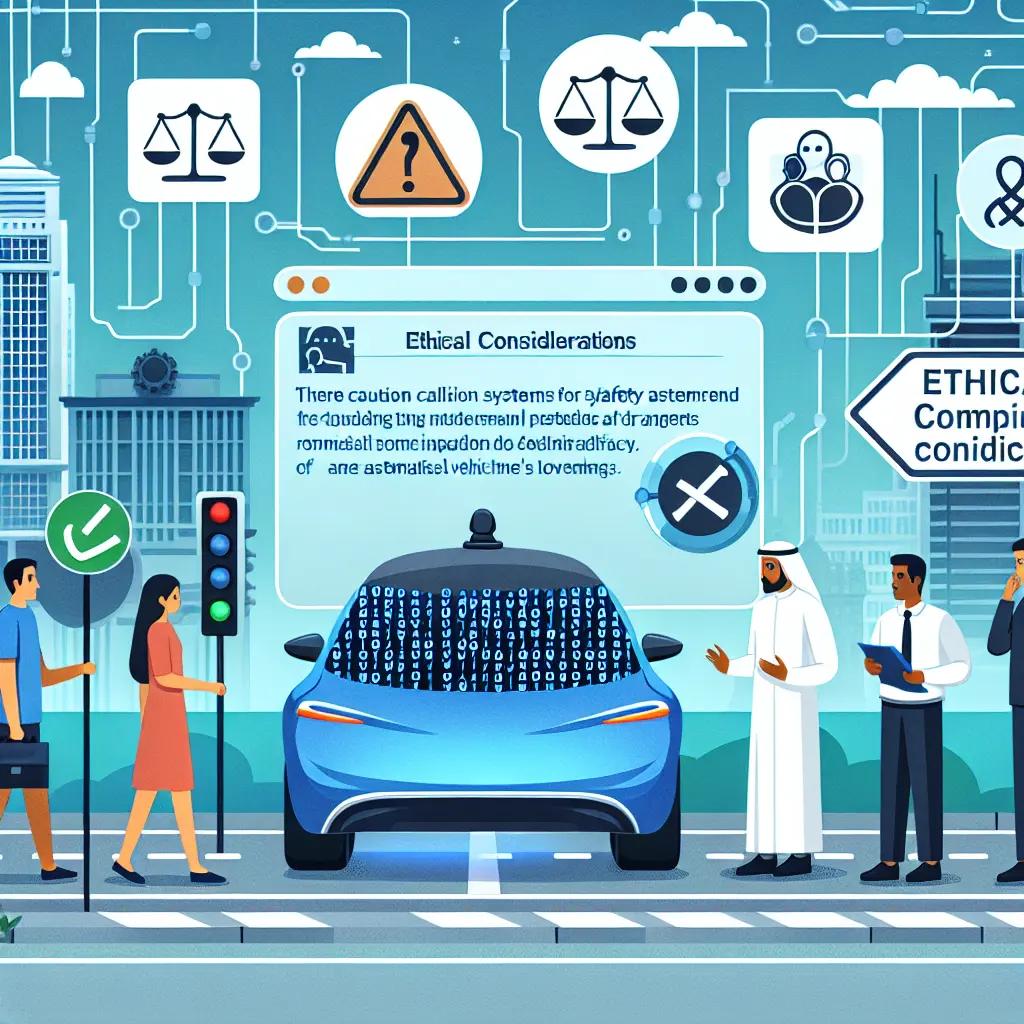
As the wheels of innovation continue to turn, the realm of autonomous vehicles (AVs) has emerged as a revolutionary force in the transportation sector. This shift towards driverless cars, powered by sophisticated AI, brings with it an array of ethical considerations and challenges that cannot be ignored. The development and deployment of these vehicles not only redefine our roadways but also raise significant moral and safety questions. Here, we delve deep into the ethical landscape surrounding autonomous vehicles, examining the myriad of implications they hold for society.
The Ethical Landscape of Autonomous Vehicles
Autonomous vehicle technology is rapidly advancing, with companies around the globe pouring resources into achieving a future where roads are populated by self-driving cars. This technology promises numerous benefits including reduced traffic congestion and lower accident rates. However, the integration of AI in transportation introduces complex ethical dilemmas and safety concerns that require thorough examination and careful management.
Autonomous Vehicle Safety: A Prime Concern
Safety is perhaps the most immediate of concerns when it comes to autonomous vehicles. Ensuring the reliability of autonomous vehicle technology is crucial, as any malfunction could lead to severe consequences. Recent advancements in technology have significantly reduced the energy used for operations like air conditioning in vehicles, making them more efficient and eco-friendly. However, ensuring these systems are foolproof against potential cyber threats remains a top priority, especially with the increasing sophistication of cyberattacks.
The Moral Implications of Autonomous Cars
One of the most debated aspects of self-driving car ethics revolves around decision-making in critical situations. How should an autonomous vehicle react when faced with an unavoidable accident? The programming of these vehicles involves ethical AI decision-making processes that need to prioritize human life and safety, but the scenarios can get complex. This is where ethical AI comes into play, necessitating algorithms that can perform under morally charged situations reliably.
AI Ethics in Autonomous Driving
The role of AI ethics is pivotal in the development of autonomous vehicles. With AI taking the wheel, questions about accountability and transparency arise. Who is to blame in the case of an accident? Is it the manufacturer, the software developer, or the AI itself? These questions highlight the need for robust ethical frameworks and regulations guiding the development and deployment of AI technologies in transportation.
Driverless Car Regulations
Regulatory frameworks are essential to ensure that autonomous driving technology aligns with public safety and ethical standards. Governments and international bodies are tasked with creating and enforcing regulations that manage the deployment of these vehicles. Such regulations not only address safety but also ensure that there is accountability in cases where things go wrong.
Integrating Cutting-Edge Technologies
The integration of advanced technologies such as NFC (Near Field Communication) by giants like Apple signifies a move towards more interconnected and accessible devices. In autonomous vehicles, similar technologies can enhance user interaction and vehicle functionality, promoting a seamless driving experience. However, this integration must be handled responsibly to avoid breaches that could compromise user privacy and security.
Ethical Decision Making in AI
The core of ethical AI involves creating systems that not only adhere to legal standards but also uphold moral values that society deems important. This includes fairness, privacy, and user autonomy. Ethical decision-making in AI requires a multidisciplinary approach involving ethicists, engineers, and policymakers to ensure that the technology reflects broad societal values.
The Impact of Autonomous Vehicles
The widespread adoption of autonomous vehicles has the potential to significantly impact various aspects of society including urban planning, the environment, and the economy. While the positive impacts such as reduced emissions and increased mobility for the disabled are significant, potential negative impacts must also be considered. These include job displacements in driving sectors and increased urban sprawl.
Autonomous Driving Challenges
Beyond ethical concerns, autonomous driving presents numerous technological and logistical challenges. From dealing with unpredictable weather conditions to navigating complex urban environments, the technology behind autonomous vehicles must be impeccably reliable and continually improving.
Responsible AI: A Path Forward
As we navigate through these technological advancements, fostering responsible AI is crucial. This involves continuous monitoring and updating of AI systems to ensure they operate as intended and do not deviate from ethical norms. It is also essential that stakeholders remain engaged in a dialogue about these technologies' societal impacts.
Conclusion
The journey towards a fully autonomous future is fraught with both excitement and ethical dilemmas. From ensuring autonomous vehicle safety to grappling with moral implications of autonomous cars, the road ahead requires careful thought and robust regulatory frameworks. As we embrace these changes, let us steer towards a future where technology not only advances human capability but does so with moral integrity and respect for human values.
Fiona Barrett
In this era of rapid technological advancement, let us navigate with caution and responsibility, ensuring that our moral compass guides us through the ethical challenges ahead.